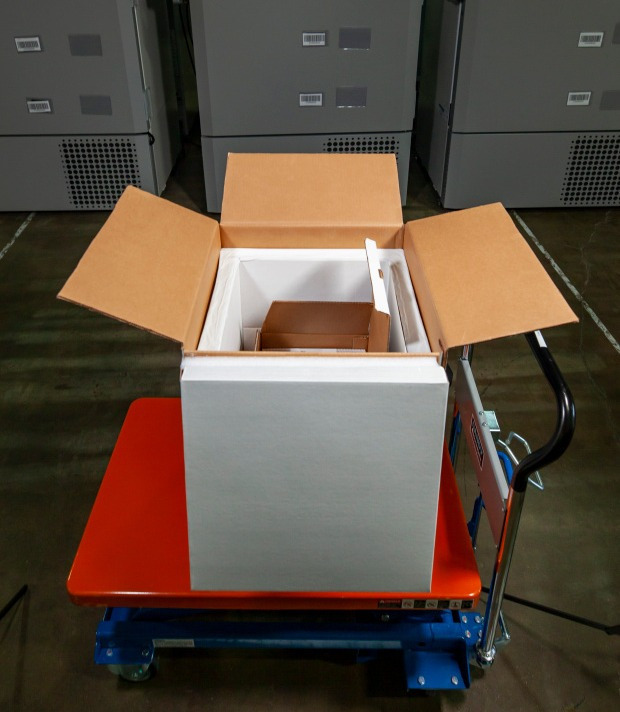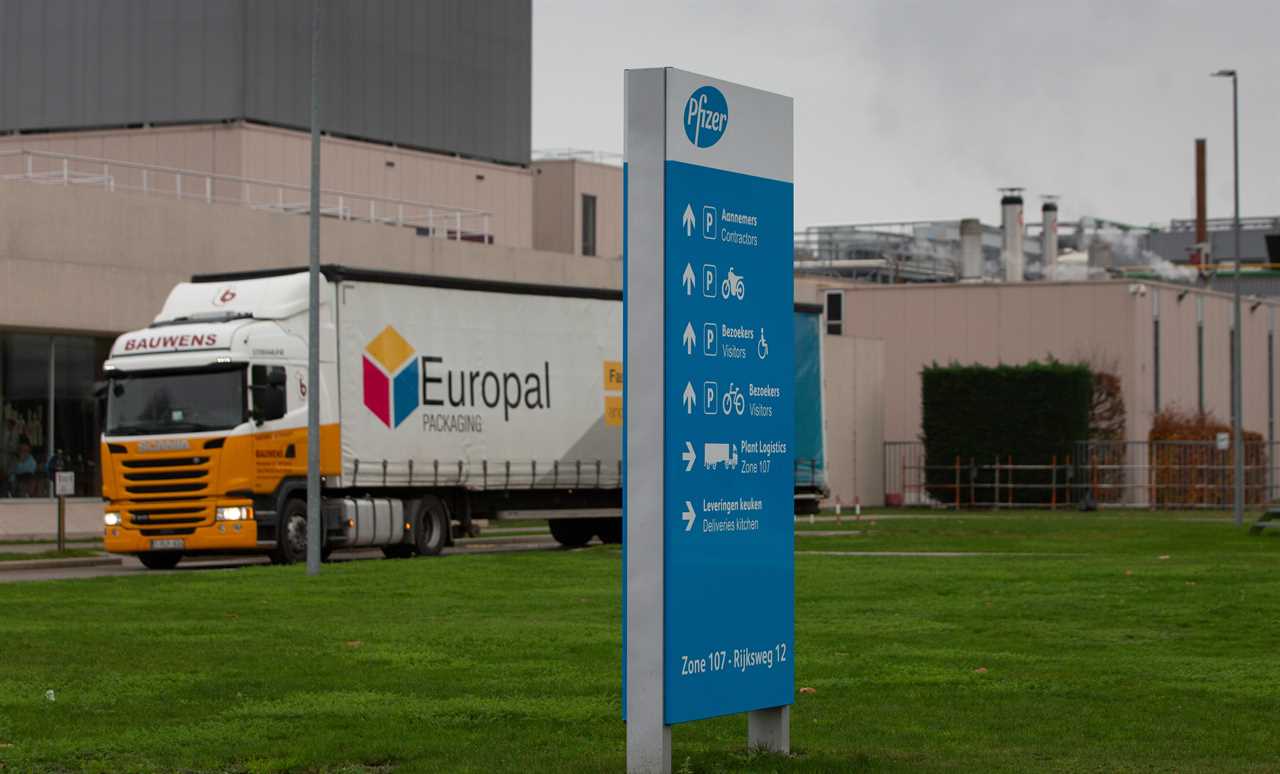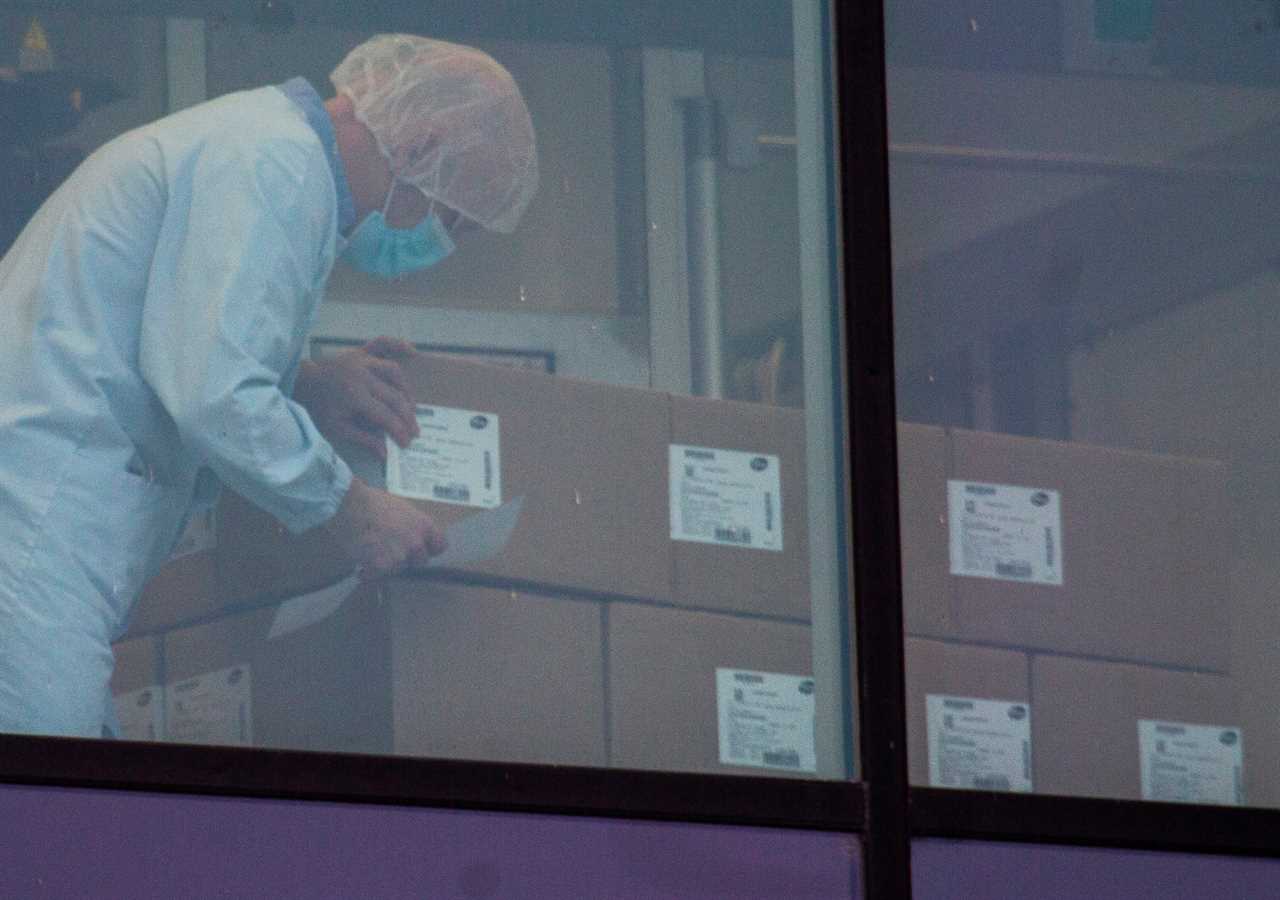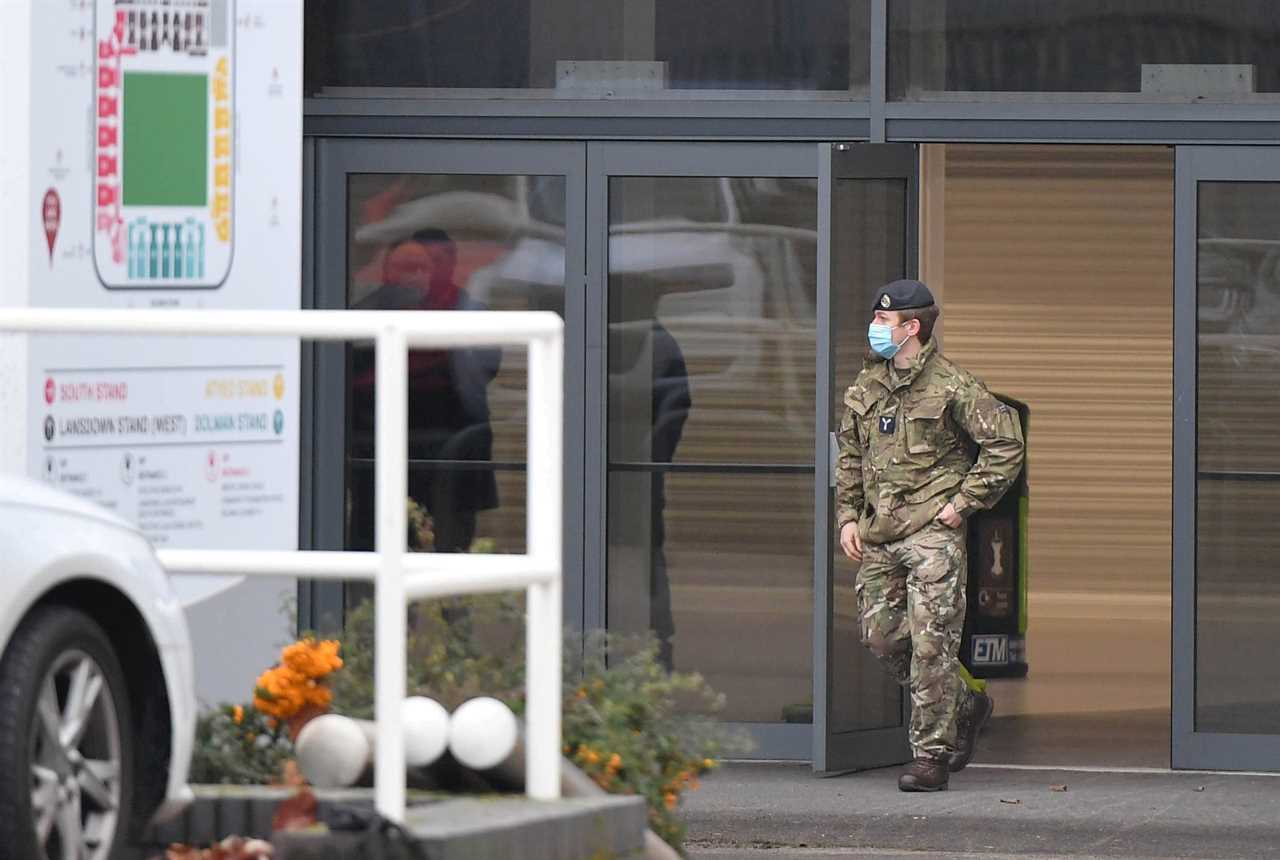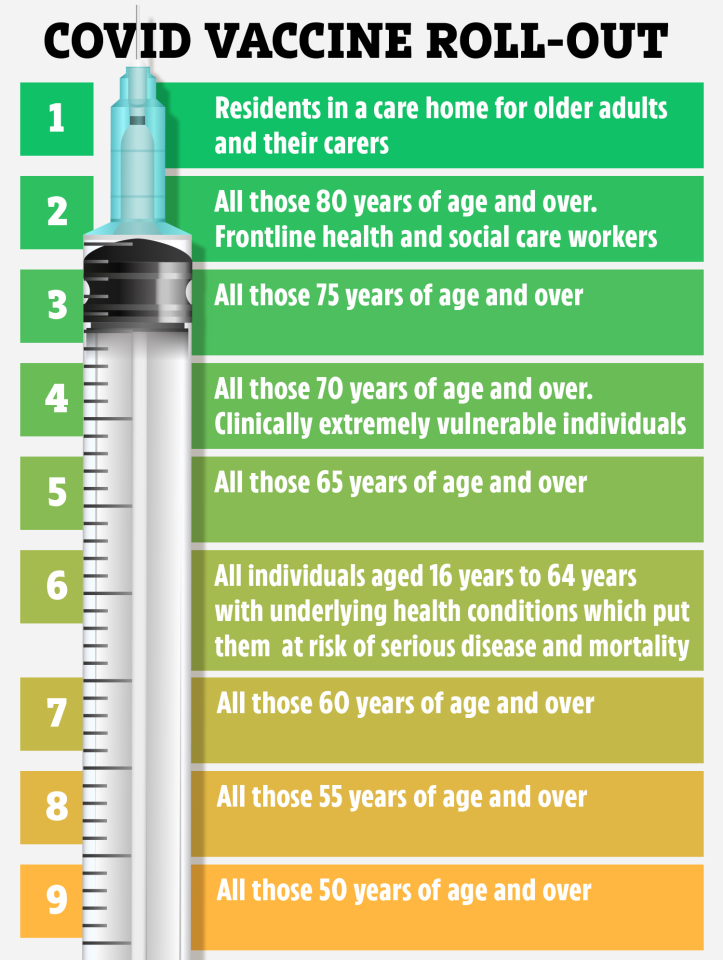THE coronavirus vaccine is set to arrive in the UK by this afternoon, officials have said.
But before millions of Britons are jabbed, there is a huge logistical challenge to deploy the doses across the four nations.
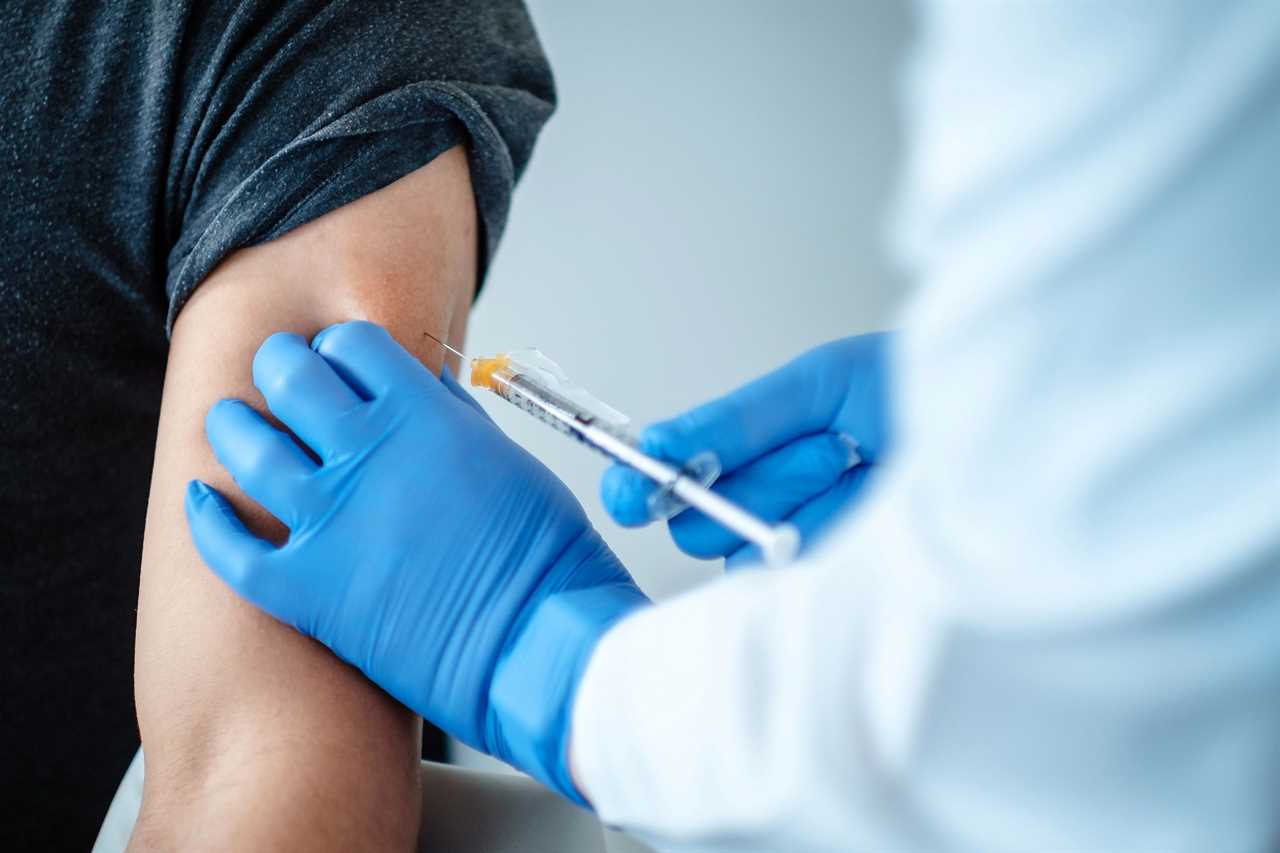
NHS boss Sir Simon Stevens has said the service is “ten out of ten” ready to roll out the vaccine from drug giant Pfizer, approved on December 2.
He said it will be the “biggest vaccination campaign” in British history, and there are huge challenged to getting it deployed to the right places quickly.
The Government has set out a priority list so that those who are most vulnerable to the disease are protected first.
How will do you know when it’s your turn to be jabbed?
There are three phases:
- Hospitals will contact patients with appointments
First the vaccine is being taken to 53 hospitals in England. Staff there will inform you about whether you’ll be getting the jab during an existing appointment in the next few weeks.
Sir Simon said: “Typically they may be people who were already down to come into hospital next week for an outpatient appointment.
“If you are going to be one of those people next or in the weeks that follow, the hospital will get in touch with you.
“You don’t need to do anything about it yourself.”
- GPs will contact at-risk patients on their list
In the next phase of the plan, vaccines will go to GP surgeries who will know their most at-risk patients.
Sir Simon said: “[Hospitals] will be followed in the subsequent weeks by GP practices coming together in each area to operate local vaccination centres.
“GPs will be in touch with their at-risk patients, inviting people to come forward for vaccination.”
Sir Simon reiterated the NHS would get in contact with you.
- Large vaccination centres will immunise the rest of the population
When more doses become available, large vaccination centres and pharmacies will offer the jab.
More details of this will be announced when this part of the process is ready to be rolled out.
People in Scotland will start getting vaccinated from Tuesday, with the same prioritisation plan as England.
Only those over 18 will be offered the jab, despite the authorisation being for anyone over 16.
HOW MANY JABS ARE THERE?
Health Secretary Matt Hancock has said the first wave will include 800,000 doses, which will arrive within “hours, not days”, England’s deputy chief medical officer Jonathan Van-Tam said this morning.
This would cover 400,000 people because the jabs need to be given in two doses, 21 days apart.
“Several million” more will follow by the end of this year, but Mr Hancock refused to put a number on how many.
The BioNTech chief commercial officer Sean Marett confirmed the UK is likely to receive at least five million doses by the end of the year.
This is half of its initial 2020 order due to a production scaleback.
In total the UK has secured 40 million doses, which will cover 20 million people. There are about 66 million adults in the UK.
The majority of vaccination will happen in the new year until around April time, health chiefs say.
Ben Osborn, Country Manager, Pfizer UK, said: “We are on track to deliver up to 50 million does globally in 2020, and up to 1.3billion in 2021.”
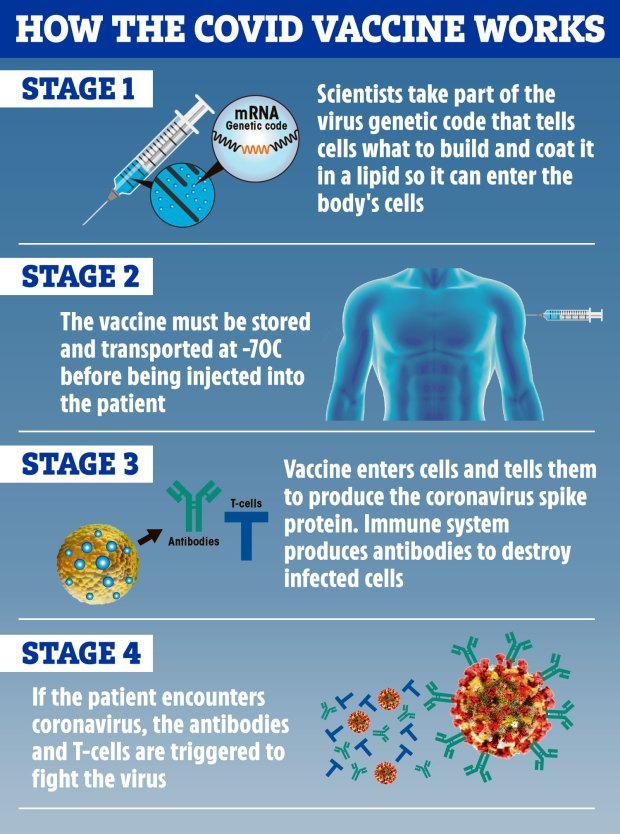
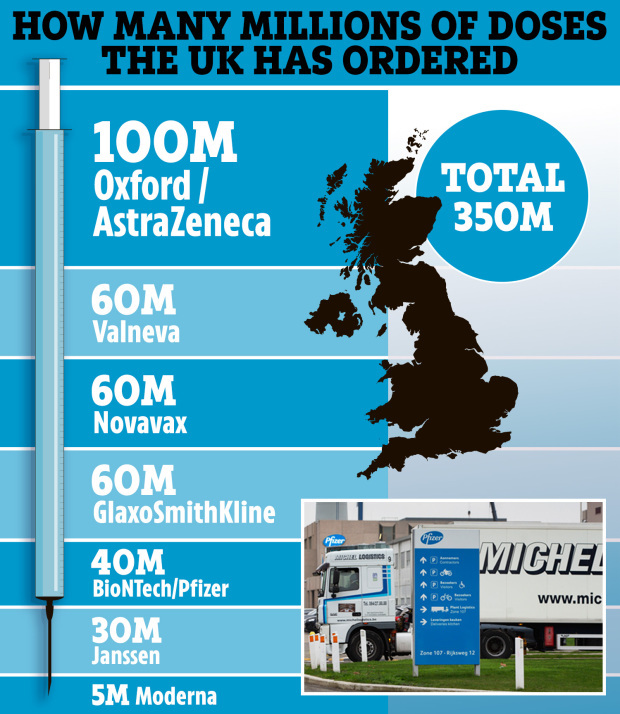
50 HOSPITAL HUBS
In total 53 NHS trusts are standing by to roll out the Pfizer Covid vaccine from next week, as early as Monday.
They have been chosen because they have super-cold freezers that are able to store the vaccines at -70C.
The trusts will act as “hubs” which will offer the jabs to people in their area in order of priority, as well helping with co-ordinating distribution.
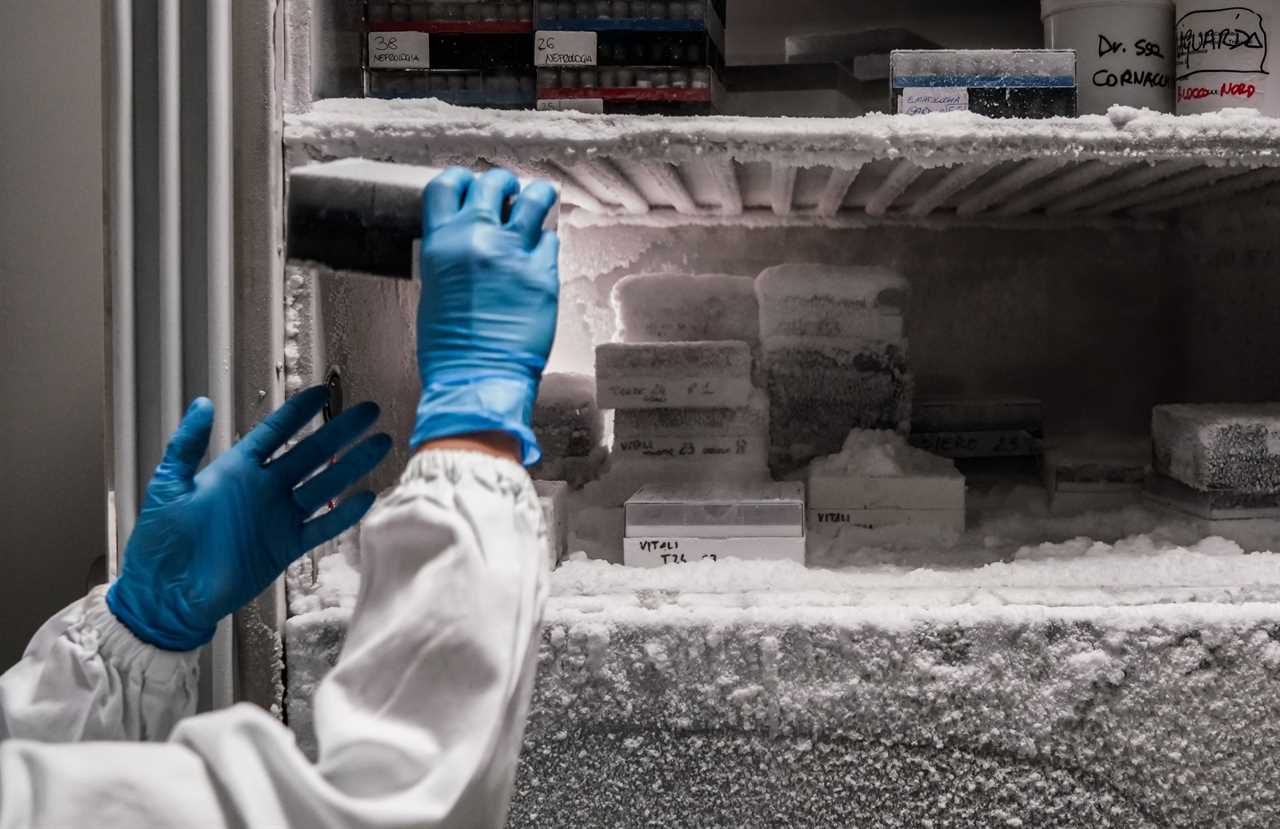
A London hospital is expected to be the first to give out a Covid-19 vaccine at 7am on Monday morning, The Telegraph reported.
The unnamed hospital is one of seven in the capital to receive batches of the Pfizer jab over the weekend, after it was approved by regulators yesterday.
It could be Croydon University Hospital, Guy’s & St Thomas’ NHS Trust, Kings College, Princess Royal University Hospital, Royal Free, St George’s University Hospitals or University College Hospitals.
CARE HOMES MIGHT HAVE TO WAIT
Care home residents, and their carers, were supposed to be prioritised for the vaccine. But because of the way the vaccine is distributed it makes delivery a logistical nightmare.
The vaccines, once taken out of the freezer, can only be thawed in batches of 1,000. But each care home looks after a maximum of several hundred residents, sometimes below 100.
Officials have to work out how to split the huge batch and how to transport them so none of the vials go to waste.
And once they are thawed, it they can only be stored at fridge temperatures for five days.
There is not yet approval from the MHRA to split the vaccine boxes, meaning it would be wasted if sent to individual residential homes.
Only when regulators approve the “splitting” of the packs will it be distributed to care homes, Sir Simon admitted. He said the approval was expected but did not give a timeline.
Number 10 said the NHS is working closely with the regulator to find a way to administer the Pfizer vaccine in care homes.
The Prime Minister’s official spokesman confirmed the first doses given through hospital hubs may include elderly care home residents.
“The over-80s include those due to come into hospital for routine treatment, so it is obviously possible that that might include some care home residents,” the spokesman said.
“But it is logistically complicated, which is why the NHS are working closely with the MHRA.”

